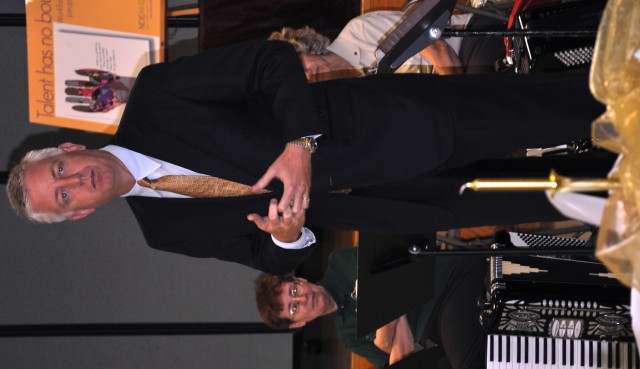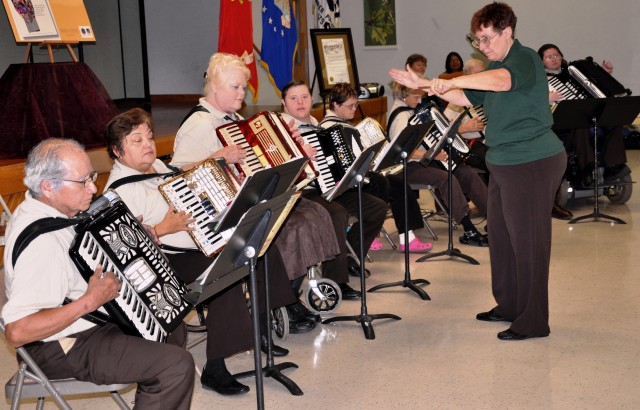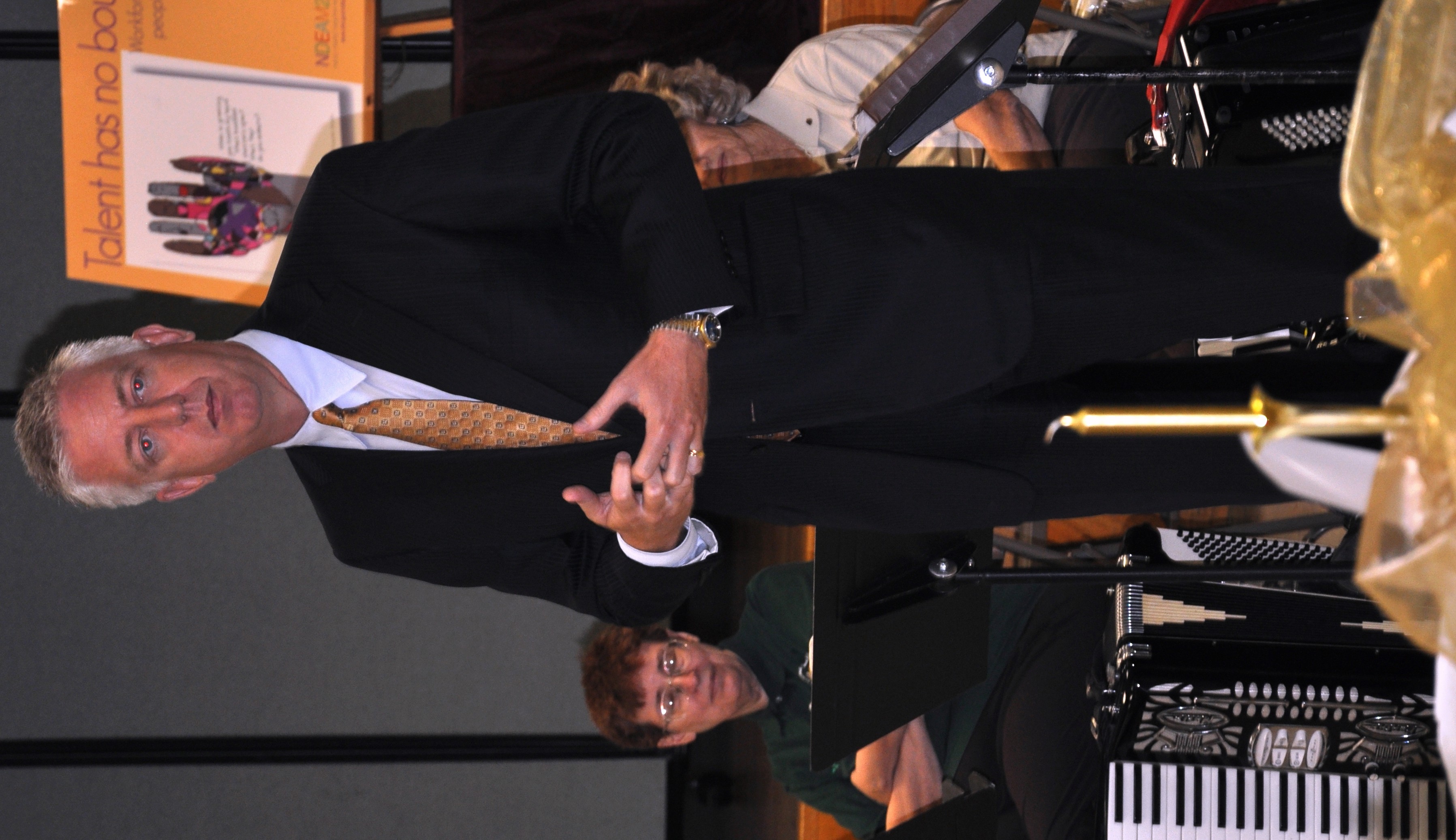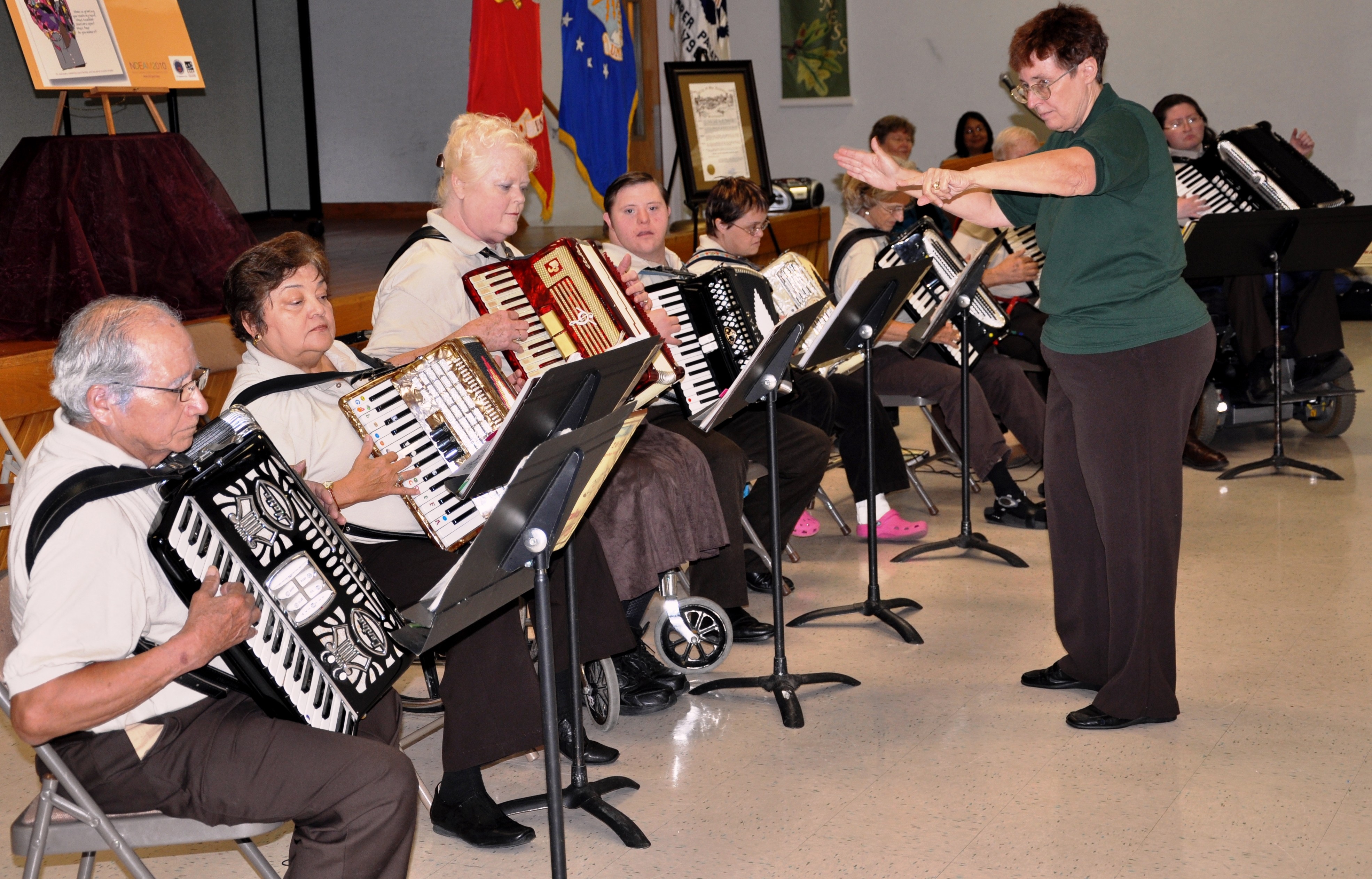FORT SAM HOUSTON, Texas -- During National Disability Employment Awareness Month each October, the Department of Labor and other federal agencies put a spotlight on the issues job-seekers with disabilities face, and how they can be overcome.
At Fort Sam Houston, a luncheon was held at the Dodd Field Chapel Oct. 28 and a pair of speakers gave very different perspectives on living and coping with disabilities.
The first speaker was local philanthropist Gordon Hartman, whose foundation has donated millions of dollars towards supporting programs, projects and collaborative efforts of Bexar County organizations that serve individuals with cognitive and physical disabilities, with a particular focus on serving children's needs.
Hartman, a San Antonio native, began a successful homebuilding business in 1983, building homes for low- to moderate-income families. Over the next 22 years, it became the largest locally owned homebuilding and land management enterprise in San Antonio. In 2005, he sold it to create the Gordon Hartman Family Foundation.
The decision Hartman and his wife, Maggie, made to give their time and resources to this specific cause was inspired by their daughter, Morgan, who copes daily with cognitive and physical challenges. The Hartmans put up $10 million to start the foundation's initial funding.
"We were blessed to be able to provide for Morgan's needs in ways that many families could not," Hartman said. "When I sold the business, I was looking for the right thing to do. After spending time with Morgan, who wakes up every day with a smile on her face and a great attitude, I decided to dedicate the second half of my life to helping those with special needs."
Hartman told the story of going to a local pool with Morgan, where she saw some other children playing and wanted to join them. After the other kids left before she could play, Hartman wondered how he could make it where kids with special needs could interact and have fun.
In January 2007, seeing the need for an accessible outdoor park tailored for those with special needs, he raised $15 million to create what would become Morgan's Wonderland.
"I got people to think outside the box on how to design it," Hartman said. "I didn't want professional theme park designers who would build it their way. We went and asked those with special needs what they would like to have in a park."
On April 10, that vision came to fruition as the ultra-accessible park opened its doors. In the first six months, more than 70,000 people from 46 states and 10 foreign countries have enjoyed the 25-acre park located at the intersection of Thousand Oaks and Wurzbach Parkway.
"The park has no barriers," Hartman stressed. "No matter what disability a person has, they can go on any ride as many times as they want. We've also been working a lot with wounded warriors and their Families to make sure Morgan's Wonderland is a place where they would feel comfortable and safe."
Hartman wrapped up his talk by relating the story of a disabled girl and her mother that he had overheard talking as they left the park. "The little girl turned to her mother and asked her 'Mommy, we were just in heaven''"
Next up was Warrant Officer Tawan Williamson, a Soldier who enlisted in 1995 and lost the lower part of both legs in 2006 as the result of a roadside bomb while he was on patrol in Iraq.
"It took a lot for me to move forward after my injury," the Chicago native said. "I couldn't lay down and let things happen to me. I knew I couldn't give up. I have four kids and a wife who need me."
One of the first five Soldiers to be allowed to remain in the Army after his amputations, he also helped cut the ribbon at the Center for the Intrepid at Fort Sam Houston.
Williamson decided to move his career forward and entered warrant officer school. In July 2010, he became a military personnel technician. He also tells his story to other wounded warriors, encouraging them to stay in and progress their careers if they can.
"It wasn't my disabilities that got me through Warrant Officer Candidate School, it was my abilities," Williamson said. "A lot of wounded warriors elect not to stay in. I felt I had a purpose for remaining in the Army and part of that was telling my story."




Social Sharing